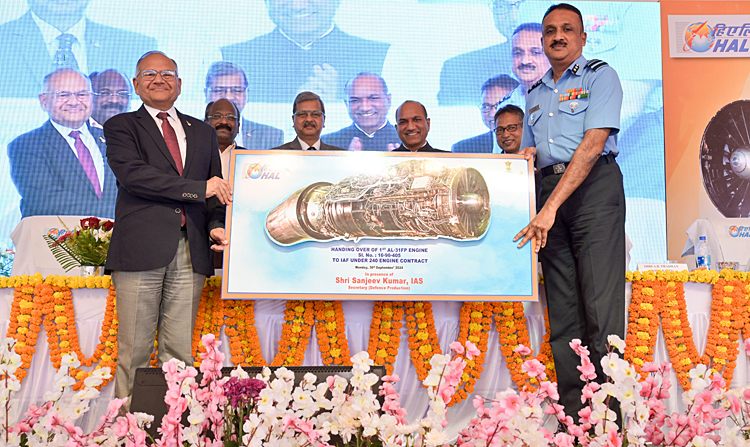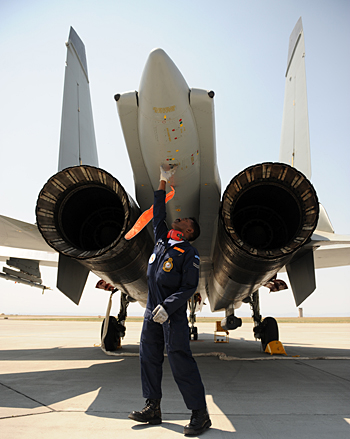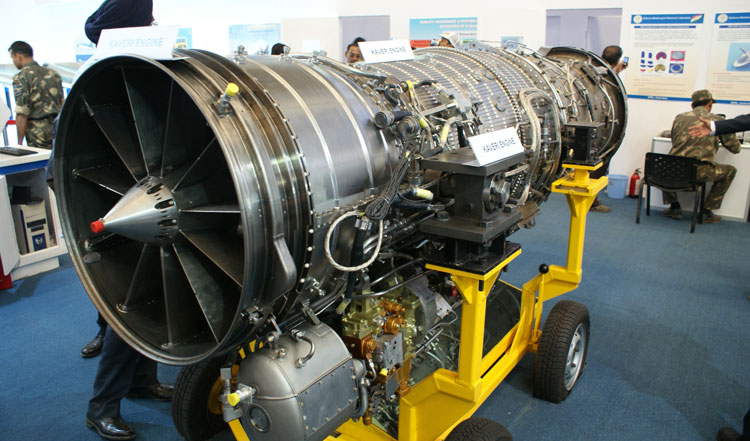INDIAN ARMED FORCES CHIEFS ON OUR RELENTLESS AND FOCUSED PUBLISHING EFFORTS

The insightful articles, inspiring narrations and analytical perspectives presented by the Editorial Team, establish an alluring connect with the reader. My compliments and best wishes to SP Guide Publications.

"Over the past 60 years, the growth of SP Guide Publications has mirrored the rising stature of Indian Navy. Its well-researched and informative magazines on Defence and Aerospace sector have served to shape an educated opinion of our military personnel, policy makers and the public alike. I wish SP's Publication team continued success, fair winds and following seas in all future endeavour!"

Since, its inception in 1964, SP Guide Publications has consistently demonstrated commitment to high-quality journalism in the aerospace and defence sectors, earning a well-deserved reputation as Asia's largest media house in this domain. I wish SP Guide Publications continued success in its pursuit of excellence.
The Aero Engine Conundrum
The visit of HAL CMD to Russia's aircraft engine facilities and France's proposal for co-development of advanced engines, which is essential for India's aviation capabilities, has put the burden of an early decision on the policy makers
 |
The Author is Former Director General of Information Systems and A Special Forces Veteran, Indian Army |

News reports of November 26, 2024 reported that Chairman and Managing Director (CMD) of Hindustan Aeronautics Limited (HAL) D.K. Sunil, who assumed his current full-time appointment on September 9, 2024, was on a visit to Russia's aircraft engine facilities to strengthen HAL's collaboration in the defence sector, particularly in the area of aircraft engines, which are crucial for India's military aviation capabilities. Sunil was expected to engage with local manufacturers and explore opportunities transfer of technology (ToT) and collaboration that could further bolster HAL's indigenous engine production capabilities; as part of a broader strategy by HAL to expand its technological expertise and production capabilities in military aviation, reinforcing India's defence preparedness through enhanced collaboration with international partners.
HAL CMD's visit to Russia was aimed at enhancing collaboration in aircraft engine technology crucial for India's defence preparedness
The government has been talking since the past several months about export of the Light Combat Aircraft – LCA Tejas fighter aircraft. (LCA) 'Tejas', which had its inception in 1984. Our diplomats, together with teams from the HAL, have been meeting foreign officials to aggressively push exports of the LCA Tejas. News reports have been mentioning countries like Botswana, Congo, Egypt, Nigeria, Malaysia and the Philippines having shown interest in procuring the LCA; although the LCA lost the race last year to second-hand F-16s in exporting fighter jets to the Argentinian Air Force. Ironically, the politico-bureaucratic priority for exports somehow takes priority over equipping our military by default or design. Same goes for the Tejas LCA, perhaps based on the premise there will be no war despite the Indian Air Force (IAF) fighter jet squadron strength down to the 1965 level.

The IAF inducted its first LCA Tejas in 2016 and currently operates two squadrons of this fighter jet. The LCA has been participating in war games with foreign air forces; including in the 2024 edition of the multilateral wargame 'Tarang Shakti'. HAL was scheduled to deliver its first LCA Mk1A fighter jet to the IAF in February 2024. However, a delay in the supply of engines powering these fighter jets from the American firm GE Aerospace has derailed the delivery schedule, which was covered in these columns earlier. The IAF has placed orders for 83 + 97 LCA Mk1A aircraft, which will receive 40 upgrades in their first iteration; making the IAF the operator of the largest fleet of Tejas fighters.
Export focus of the LCA Tejas are ongoing despite challenges, including losing contracts to second-hand F-16s

HAL earlier aimed to deliver 83 LCAs one year before the delivery schedule of 2028-29. This was to be followed by the delivery of 97 LCA MK1A for the IAF. But this schedule has been badly upset because of the inordinately delayed delivery of aero engines by GE Aerospace. The ironic part is that the delay by GE Aerospace in delivering engines is "deliberate" with sanction of the US "deep state". This stance is being followed by the West as well. For example, the European consortium responsible for developing one of the world's most advanced air-to-air missile 'Meteor' is not keen anymore to support the IAF plans to integrate the Meteor missile on its Tejas Mk-1A, Su-30 MKI and upcoming Tejas Mk-2, despite the fact that the 36 Rafale fighter jets currently held by the IAF are equipped with Meteor missiles, as well as the Gripen-E and Eurofighter 'Typhoon' are already equipped with Meteor missiles. It requires no intelligence to discern that the US-led West wants to stymie India's indigenous defence capabilities. HAL recently secured a $3.1 billion deal for 240 AL-31FP engines for the Su-30 MKI fighter jets, which cannot be equipped with Meteor missiles now.
HAL has now appointed Ravi Kota, having 20-year experience in aerospace and the defence sector, as Director of Operations for the Tejas program to overcome the F404 engines. What Kota can achieve only time will tell but where did we go wrong all these years? Dr A.P.J. Abdul Kalam, former President of India, wrote in his book 'Wings of Fire' published in 1999 that "engines" was one of the major handicaps India has in indigenous capability.
Delayed engine supplies from GE Aerospace is seriously disrupting the delivery schedule of LCA Mk1A aircraft for the IAF
The sordid saga of the 'Kaveri' engine, first run in 1996, was covered in these columns earlier, including delays on account of bureaucratic shenanigans centred on India's deep state. Political mudslinging is the bane of India and so there are write ups blaming the Congress; but why has the BJP-led NDA depended solely on research by the governmental industrial set up? Addressing the Defence Services Staff College in 1978, the then Japanese ambassador to India said Japan was nowhere in computers when the government called all industries saying here is the money and the infrastructure, we want to beat the US in computers in 5-years; Japan did it in 3-years. Why have we not adopted this approach despite chest-thumping we have the best of brains in the world and India is the Vishwa Guru? Wouldn't a company like Tata have taken the lead to develop aero engines given the support from IIT, ISC, ISRO and continuous funding? After all, ISRO did develop the cryogenic engine although it can't be used as an aeroengine. Isn't it time we got our act together? Why doesn't even the Gas Turbine Research Establishment (GTRE) under the DRDO, responsible for developing indigenous jet engines, leverage veteran India-origin aerospace experts as consultants, and advisors?

Recent news reports indicate that France has proposed co-designing, developing and manufacturing an advanced aircraft engine in partnership with Indian entities. The proposal includes full ToT, significan proprietary rights, and most notably providing expertise in manufacturing single-crystal turbine blades which is critical for high performance aero engines. GE Aerospace is NOT transfering this critical technology to India under the GE F414 engine deal despite the hype of 100 per cent ToT. India needs the single-crystal blade technology to address this critical gap in its aero-engine teachnology to transform its aviation sector for our policy makers to make early decisions and cut the red tape.





